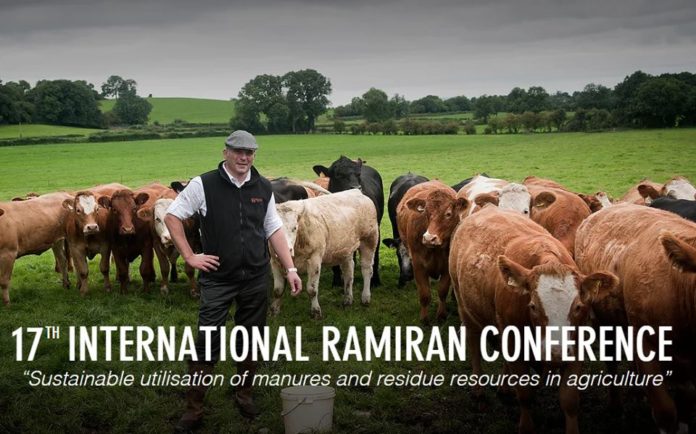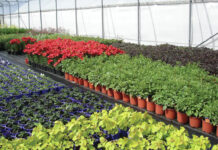

Scientists from all over the world are in Wexford this week for the 17th international RAMIRAN conference which commenced this morning, 4 September.
Opening the conference Professor Gerry Boyle, Teagasc Director, said that Ireland has ambitious targets in terms of the environmental sustainability of its agriculture and food sector. He said that the challenge for science and research, the challenge for Knowledge Transfer and the challenge for the farming community is to deliver increased agricultural production while maintaining and improving our environment. He stressed that manure management is one of the key levers to address the environmental challenges.
Delivering one of the three keynote addresses, Professor Vincent O Flaherty, from the National University of Ireland, Galway, said; “The integrated conversion of organic residues to produce fuel, power, heat, fertilisers and value added chemicals is critical to support the decarbonisation of our society and will underpin a vibrant European and global bio based economic sector. While manures and slurries represent a pollution risk, with the potential for negative impacts on the environment, they also represent a valuable resource for the production of renewable energy and a source of nutrients for agriculture.”
Professor Lars S Jensen from the University of Copenhagen, Denmark addressed the sub theme of improving crop nutrition using manures, wastes and residues. In his keynote speech, he said; “There is scope to increase the amount of agricultural fertilisation in the EU provided by recycled nutrients. The recent EU circular economy policies promote recovery and recycling of excess nutrients from agricultural, industrial and urban waste streams into products that can be used as agricultural fertilisers. With recent developments of bio-waste processing and application technologies, it is possible to supply full crop nutrition with bio based fertilisation.”
Professor Claudia Wagner-Riddle from the University of Guelph in Canada spoke about measurement and abatement of gaseous emissions along the manure management chain. She said that a combination of practices is needed for assessing the overall mitigation potential of gaseous emissions for specific livestock systems. She pointed out that between 22% and 32% of gaseous emissions from agriculture relate to manures and there is a need for abatement all along the chain from the barn, through the treatment and storage steps, to field application.










